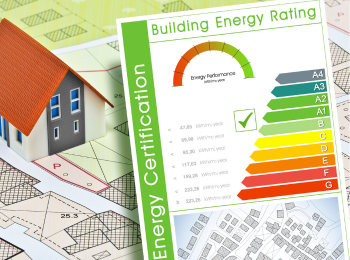Major EPC Rule Changes 2025: What Landlords Need to Know

New EPC Changes Set for 15 June 2025
On 15 June 2025, a major overhaul to the Energy Performance Certificate (EPC) system will come into force with the introduction of the RdSAP 10 methodology. This update, the most significant in over a decade, aims to deliver a more accurate reflection of how energy is used in homes, support better-informed retrofit decisions, and drive progress toward national climate targets.
EPC Changes for Landlords: What's Different?
RdSAP 10 brings a host of changes designed to enhance the accuracy and reliability of EPCs. One of the most notable shifts is in data collection. Assessors are now required to measure all windows, rather than relying on a sample.
Roof rooms will receive more nuanced evaluations, including details of common wall and gable wall construction types. Ventilation data is also being broadened and will include open fireplace ventilation, cooker hood extraction, and bathroom extractors. Assessors will be required to expanded wall and floor construction options, including the ability to record insulation thickness and thermal conductivity. These additions aim to capture a more precise thermal profile of each home.
Reflecting New Home Energy Technology
RdSAP 10 also reflects advances in home energy technology. Battery storage systems, PV diverters, and small-scale hydro power can now be included in assessments, improving the accuracy of EPC ratings for properties equipped with renewable energy innovations.
The recommendations section of the EPC has also been upgraded. Notably, heat pump advice will now consider existing insulation levels more effectively, offering more accurate and realistic guidance.
Additional updates include a new age band for properties built from 2023 onward, enhanced lighting data (requiring assessors to count all light bulbs by type), and more detailed information on water heating, such as cylinder size and heat loss—if documentation is available. For homes with heated basements, assessors can now input specific U-values for walls and floors.
Your Property EPC and Compliance:
The labour government have indicated by 2030 all rental properties EPCs will be required to be a C or above or in cases where this is prohibitively expensive to have spent a minimum of a yet to be specified sum improving the energy efficiency. The timeframe keeps being pushed back but whenever it does become law a C is the likely level.
Why Landlords Should Act Now
Good News: According to Rightmove 2024 Report, properties with a higher EPC enjoy a higher rent. Tenants are for more savvy looking for an energy efficient property. Rightmove also concluded improving a property from a D to a C can increase its value by 3%.
Please remember, Trevor Hames from Cambridge Property Lettings — an experienced letting agency in Cambridge is always happy to jump on a video call to discuss your property and how best to improve its energy efficiency.





